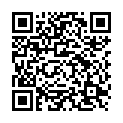|
|
|
| Module code: EE-K2-531 |
|
|
1V+1U (2 hours per week) |
|
3 |
| Semester: 3 |
| Mandatory course: no |
Language of instruction:
German |
Assessment:
Written examination
[updated 10.03.2010]
|
E304. Biomedical Engineering, Bachelor, ASPO 01.10.2011
, semester 3, mandatory course, course inactive since 28.11.2013
E304 Electrical Engineering, Bachelor, ASPO 01.10.2005
, semester 3, mandatory course
EE-K2-531 (P211-0028) Energy system technology / Renewable energies, Bachelor, ASPO 01.10.2012
, semester 3, optional course
EE-K2-531 (P211-0028) Energy system technology / Renewable energies, Bachelor, ASPO 01.04.2015
, semester 3, optional course
|
30 class hours (= 22.5 clock hours) over a 15-week period.
The total student study time is 90 hours (equivalent to 3 ECTS credits).
There are therefore 67.5 hours available for class preparation and follow-up work and exam preparation.
|
Recommended prerequisites (modules):
None.
|
Recommended as prerequisite for:
|
Module coordinator:
Prof. Dr.-Ing. Dietmar Brück |
Lecturer: Prof. Dr.-Ing. Dietmar Brück
[updated 03.12.2009]
|
Learning outcomes:
This course introduces students to the theoretical concepts that underpin electrical engineering, offers explanations of electrical and electronic phenomena, and teaches the necessary mathematical methods and measurement techniques. After completing this course, students will have acquired an understanding of non-standard problems, will be able to derive specific solutions from general theory and assess their validity, and will have developed a deeper understanding of electrical systems.
[updated 10.03.2010]
|
Module content:
1.Four-port network theory
2.Circuit types, open circuit and short circuit operation
3.Hybrid matrix, resistance matrix, conductance matrix
4.Ladder networks, parallel circuits, series circuits, recurrent networks
[updated 10.03.2010]
|
Teaching methods/Media:
Overhead transparencies, lecture notes, video projector
[updated 10.03.2010]
|
Recommended or required reading:
Baumeister, J.: Stable Solution of Inverse Problems, Friedr. Vieweg u. Sohn, Braunschweig 1987
Becker, K.-D.: Theoretische Elektrotechnik, VDE-Verlag Berlin 1982
Bergmann. L. und Schäfer,C.: Lehrbuch der Experimentalphysik Bd. III Teil 1: Wellenoptik, Walter de Gruyter, Berlin 1962
Blume, S.: Theorie elektromagnetischer Felder, Dr. Alfred Hüthig Verlag Heidelberg 1982
Collin, R. E.: Field theory of guided waves, Mc Graw-Hill Book Company New York 1960
Hafner, C.: Numerische Berechnung elektromagnetischer Felder, Springer-Verlag Berlin 1987
Hofmann, H.: Das elektromagnetische Feld, Springer-Verlag Wien 1974
Jänich, K.: Analysis für Physiker und Ingenieure, Springer-Verlag Berlin 1983
Schäfke, F. W.: Einführung in die Theorie der speziellen Funktionen der mathematischen Physik, Springer-Verlag Berlin 1963
Simonyi, K.: Theoretische Elektrotechnik, VEB Deutscher Verlag der Wissenschaften Berlin 1977
[updated 10.03.2010]
|


